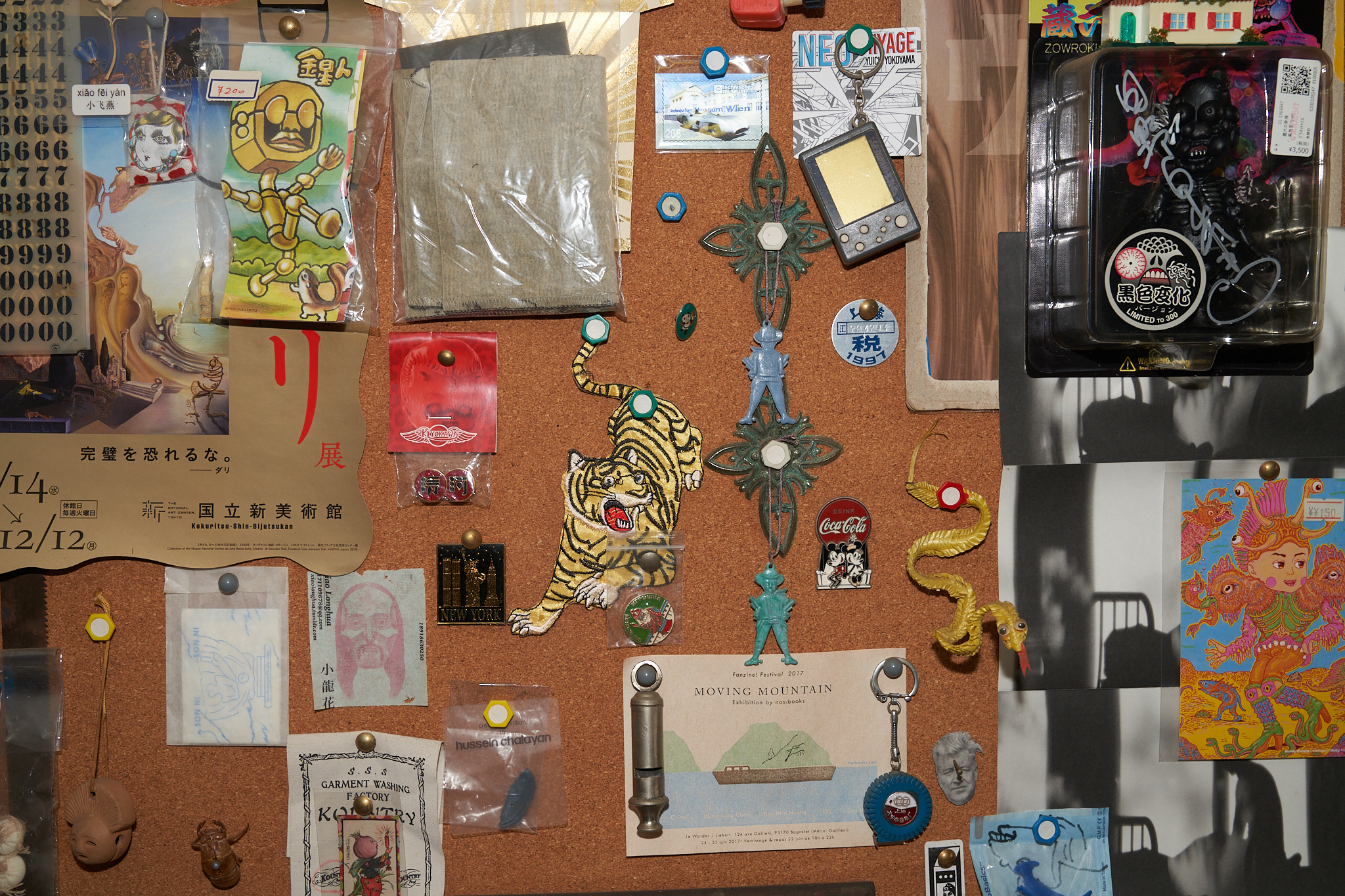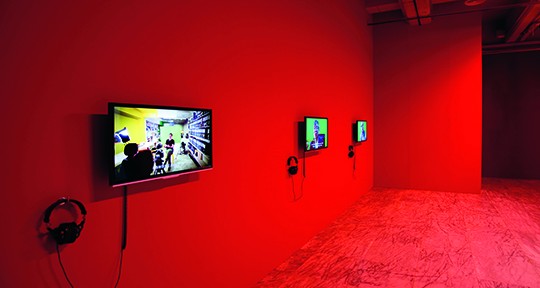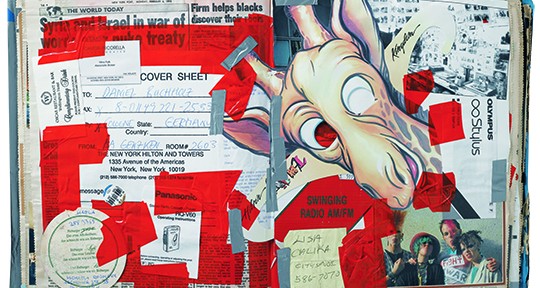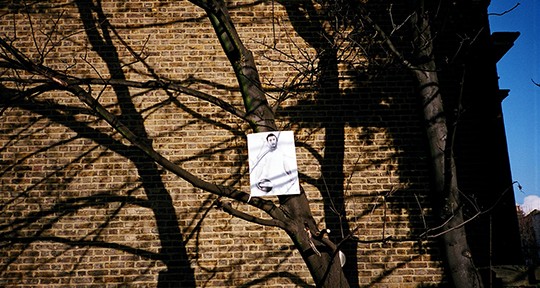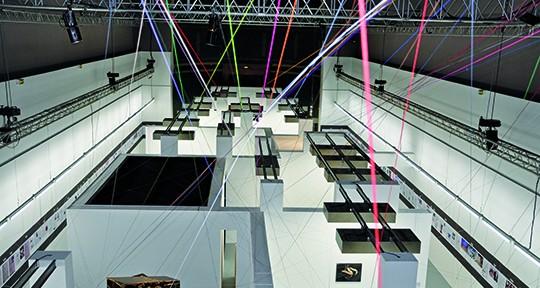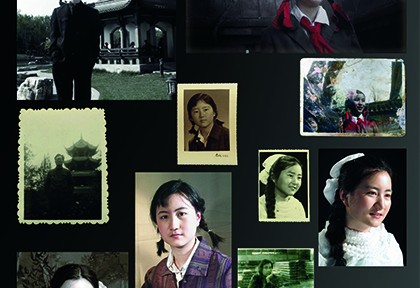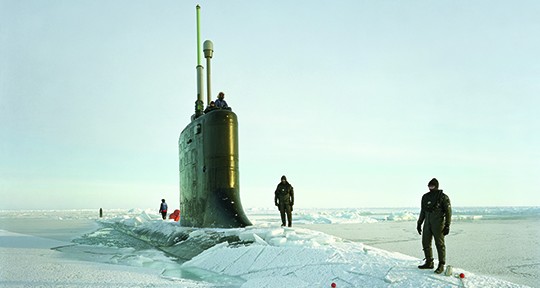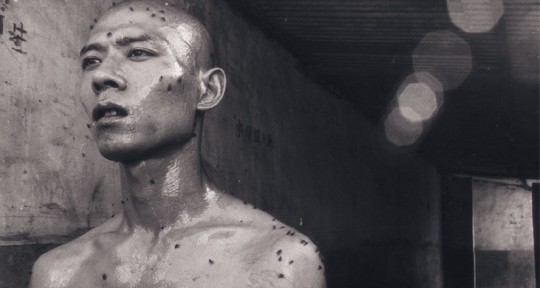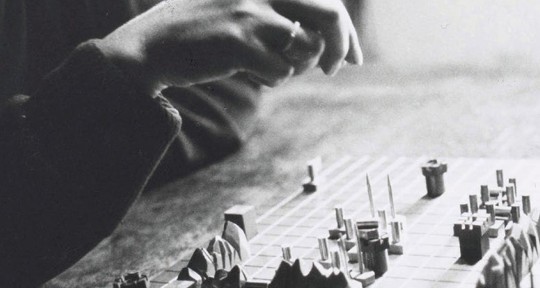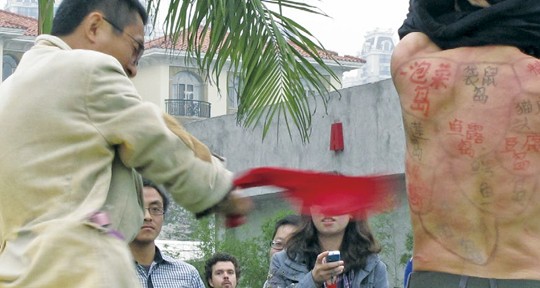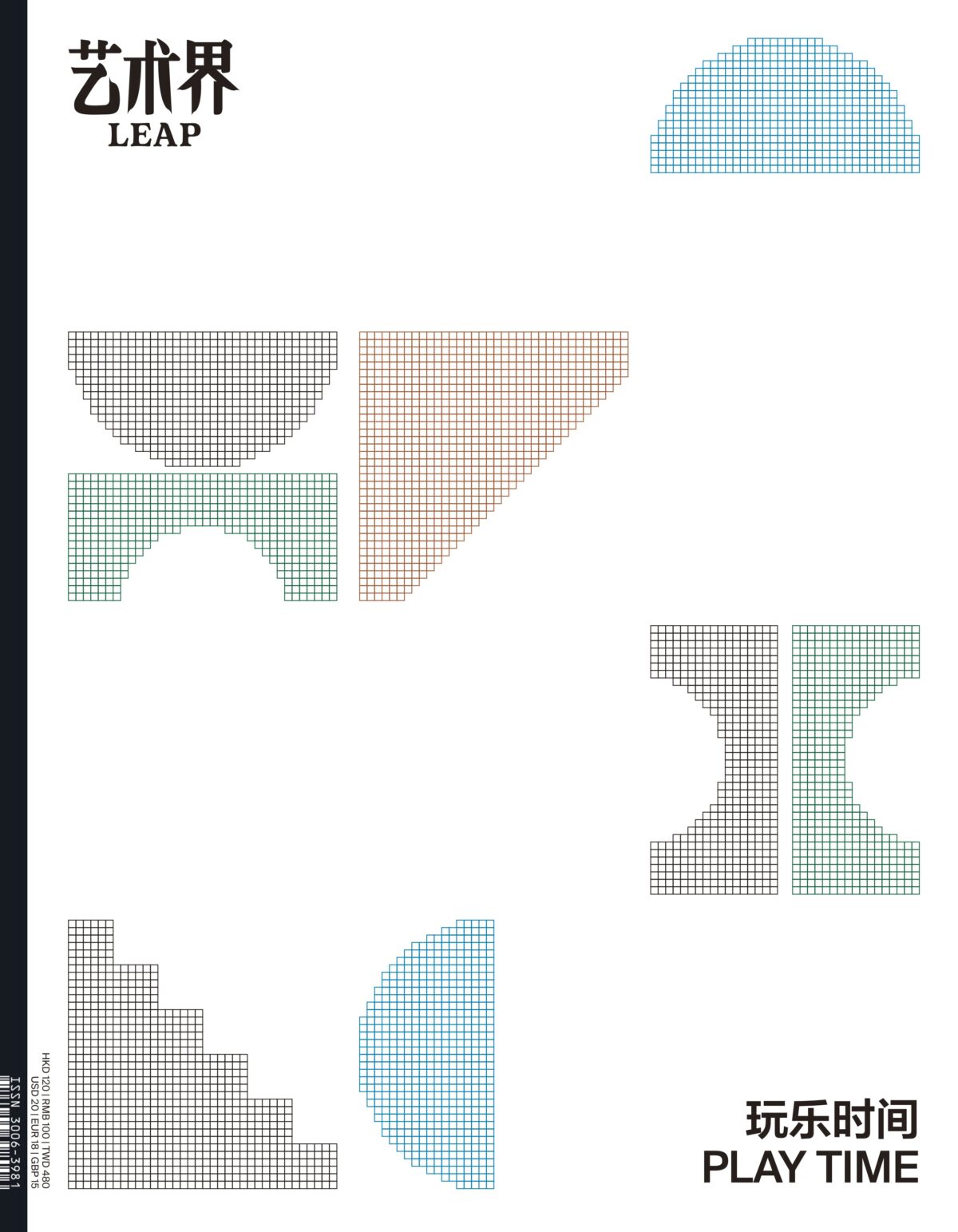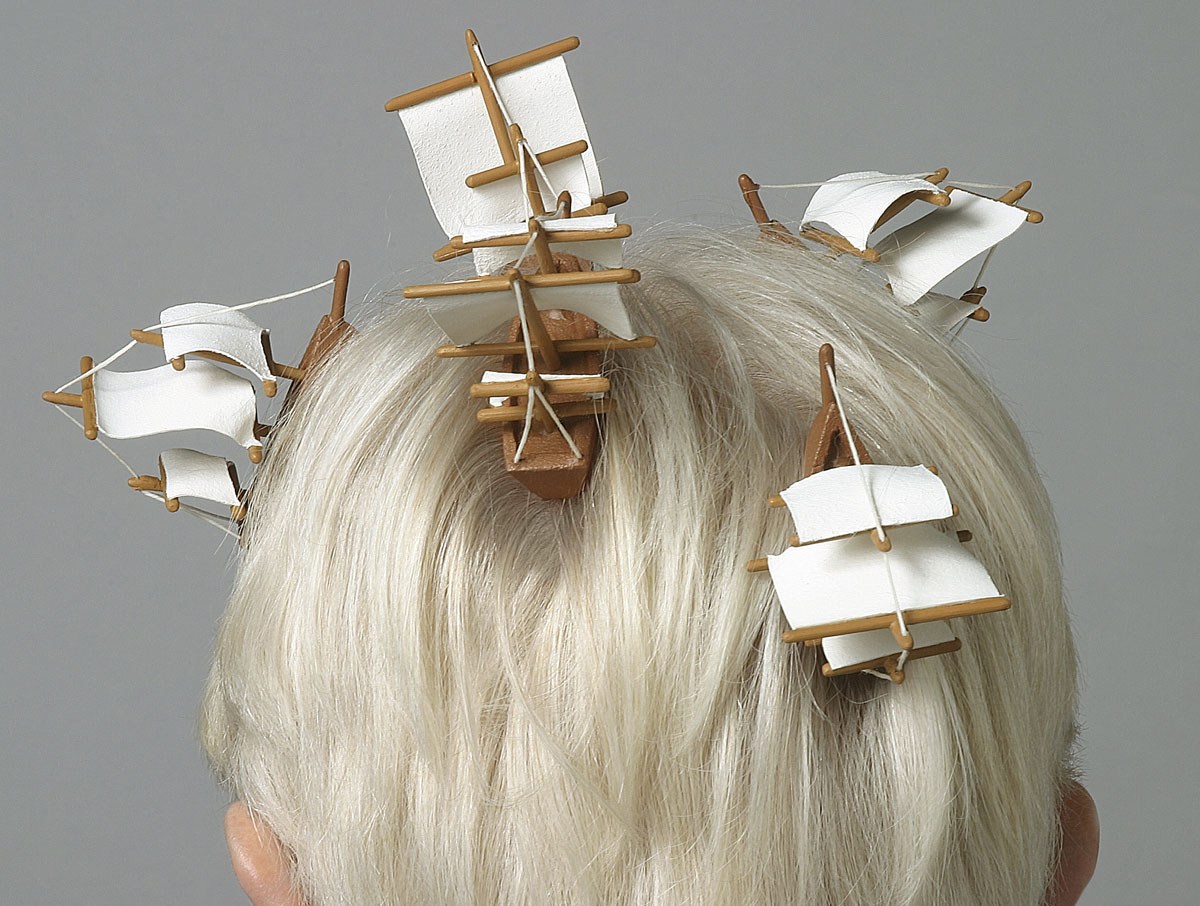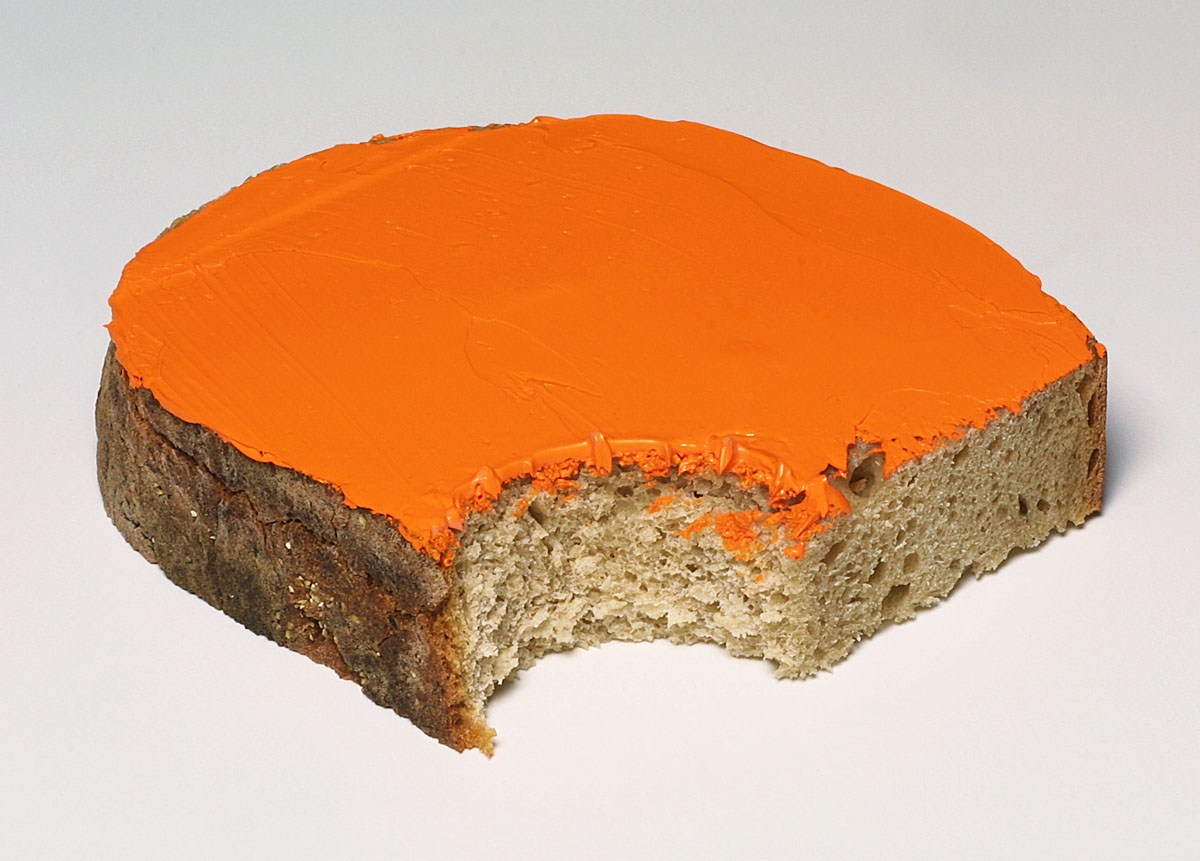TRANSLATION / David East Look at my brother. He’s successful by mastering an effective style and embellishing it with so-called conceptual content. This is why he’s known as an “international Asian ar…
Read MoreTRANSLATION / Xia Sheng Art historian Hal Foster’s extended review of German artist Isa Genzken’s MoMA exhibition in the February 2014 issue of Artforum begins with the statement that Genzken’s career has been wrongly contextualized by her relationships with more famous male artists. While this is probably true, Foster proceeds to draw an almost entirely…
Read MoreTRANSLATION / Daniel Nieh The voices of actual students describing their experiences are generally missing from discussions of art school education. The following short story, by the young artist YK, …
Read MoreTRANSLATION / David East A FEW MONTHS AGO , when I started planning an exhibition of work by graduates of Chinese art academies with fellow curator Luan Zhichao, we agreed to work by observing first and choosing a theme only later. After reviewing the graduate exhibitions of the major academies, we focused our curatorial work…
Read MoreTRANSLATION / Xi Winkler THE LABEL OF “experimental” art has developed new meanings in China since its formulation in the 1990s. In an academic context, the term means something very specific, more qu…
Read MoreWHAT MIGHT A theory of history look like at this moment? How might art make forms that at least suggest a way forward? These are pressing questions now that we know this era is the Anthropocene, that …
Read MoreNIETZSCHE’S RALLYING CRY presages postmodernism. Many believe that, with the advent of postmodernism, we are finally freed from the weight of history to pursue a more relaxed, freer, pluralistic life of pleasure. Everything will flow, and burdensome realities will dissipate as laughter rings out. Not so long ago, when Stephen Chow’s A Chinese Odyssey became…
Read MoreAs LEAP explores possibilities for art’s existence in zones of creative and political instability, Larissa Sansour proves that there are always daring alternatives for this core relationship of discourse and space. With the short video Nation Estate (2012), she proposes a viable two- state solution for Palestine and Israel not by divvying up territory in…
Read MoreIn 1973, the artist Cheo Chai-Hiang set down his thoughts on art and its predicaments at some length. The text was written in Chinese and titled (in translation) “Written for the Occasion of 8th Moder…
Read MoreSince the 1990s, few events happening on the street or in public space in China have officially entered the public view. For the majority of people, the word “public space” seems to carry little meaning. The terms quanzi (circle) and jianghu (rivers and lakes), on the contrary, make a strong impression. Quanzi in Chinese society…
Read MoreFROM AT LEAST the time of Nixon’s visit in 1972, the United States has had a love-hate relationship with China. Opening relations with the People’s Republic did not stop Americans from calling it “Red China,” nor did it change their love for fortune cookies. This attitude—a combination of political paranoia, economic competitiveness and cultural nostalgia—spilled…
Read MoreHsu Chia-Wei’s films are often characterized by “low temperature,” or a calm treatment of composition and objects. The viewer quietly listens to their narrations, which unfold with a slow and patient attitude. This kind of contained maturity is unusual for an artist only 30 years of age. Hsu is among a young generation of Taiwanese…
Read MoreNICOLAS BOURRIAUD HAS drawn on botanical concepts in order to define aesthetic characteristics in a globalized context, as distinguished from the extreme modernist “radical” tradition. In their pure pursuits, their thirst for the establishment of a new order, and their infatuation with the roots of “l’essence,” practitioners of contemporary art frequently adopt a kind of…
Read MoreThe division between Liberalism and the New Left that emerged in the mid-to-late 1990s polarized the Chinese intellectual world. Adherents of Liberalism, guided by the theories of free markets and constitutional democracy put forth by Friedrich August von Hayek and Milton Friedman, argue that China’s key challenges are returning power to the markets and combating…
Read MoreTHE GENUINE CONTENT of science fiction is not much more about the future than the present. According to Fredric Jameson, its interest is not to provide us with “images” of the future, but to bewilder …
Read MoreTHE EVERYDAY AND THE CORE—LlN XUE’S UNTITLED DRAWINGS Lin Xue (b. 1968) achieved instant fame when his work was shown at the 55th Venice Biennale this year. Curator Massimiliano Gioni had invited Lin to participate in “Il Palazzo Enciclopedico.” Prior to the show, no more than a thousand people had seen Lin’s work or had heard…
Read MoreSU WEI When we work together, many ideas, anxieties, and problems are interrelated and sometimes projected onto each other. Though these connections are not always apparent, our collaboration has been based upon a common ground we share when we discuss, initiate, and explore things together. Looking back on our past collaboration, I would say what…
Read MorePhotos from Zhang Huan’s 1994 piece 12 Square Meters have become emblematic of contemporary Chinese performance art. The artist rests in a moment of stasis, existing within different pulls and sensati…
Read More“Un art de la guerre”—this is the subtitle of the spring 2013 Guy Debord (1931-1994) documentary exhibition at the Bibliotheque nationale de France (BnF). An iconoclastic thinker, artist, and political activist, Debord scorned honors and organs of authority throughout his life and attacked what he called “the Society of the Spectacle.” Today, his manuscripts have…
Read MoreTen years ago, when we talked about Chinese performance art, one would typically refer to controversial actions like eating a fetus. However, one should not forget that there were also Xiamen Dada’s burning of artworks after exhibition (1986), Xiao Lu and Tang Song’s shooting incident at the “China Modern Art Exhibition” (1989), the Beijing East…
Read More